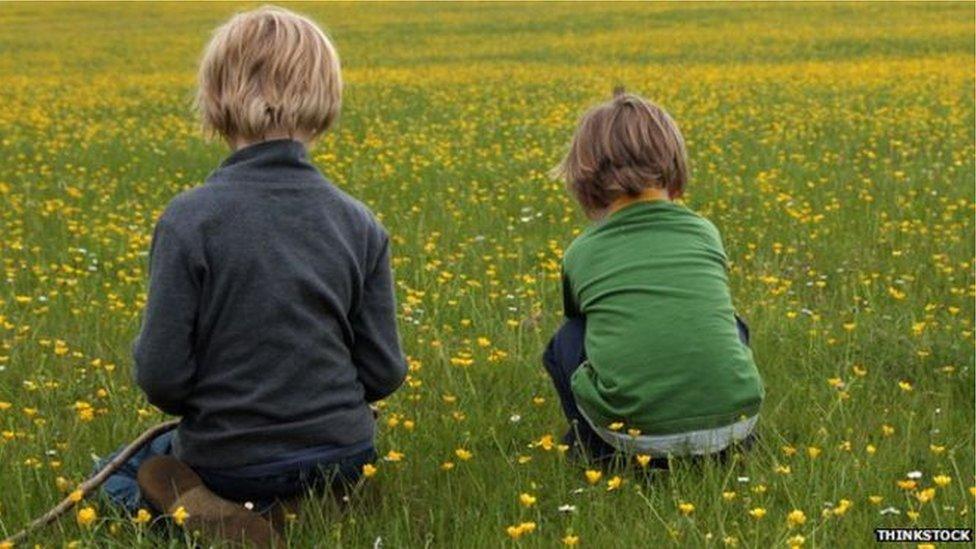Couple blocked from adopting 'due to cultural heritage'
- Published
Reena and Sandeep Mander say they don't want the same thing to happen to other couples.
A Sikh couple claim they were advised by an adoption agency not to apply because of their "cultural heritage".
Sandeep and Reena Mander said they were told by Adopt Berkshire that white British or European applicants would be given preference as only white children were in need.
It is not illegal for adoption agencies to prioritise on the basis of race.
A spokesman for Adopt Berkshire said: "We do not comment on ongoing court cases."
"They took the colour of our skin as the overriding reason not to progress with the application," Mr Mander said.
The Royal Borough of Windsor and Maidenhead has also not responded to a request for a comment.

What are the Adopt Berkshire rules?
The children available for adoption from within Berkshire will reflect the racial, cultural and religious backgrounds of the populations within the areas from which they originate.
However, children will generally not be kept waiting in order to achieve an exact match where a family can be identified who is able to meet most if not all of the child's identified placement needs.
When placing Children in Care for adoption local authorities will try firstly to identify appropriate prospective adopters for each child who reflect the child's culture and religion of heritage and who speak the child's first language.
However, where this is unlikely to be achievable, the authority will usually give consideration to placing the child with prospective adopters who do not share the child's culture and/or religion and/or language of heritage, but who can demonstrate a willingness and ability to help the child to develop a positive understanding of and connection with his culture of birth as they are growing up.

The couple contacted Adopt Berkshire, the official adoption agency for Windsor & Maidenhead Council, to look at adoption after several failed attempts at fertility treatment.
"We said that, having thought about it for six months, it was something that we really wanted to do," Mr Mander told the BBC.
"I could tell on the phone it wasn't going to end nicely.
"She asked what background we were from.
"I said we were from an Indian background, and she said that they were 'unable to prioritise us', and they wouldn't look at our case.
"They said we should, 'seek other means of adopting a child'."
Adoption agencies are allowed to prioritise on the basis of race in order to match children to prospective parents of the same ethnic background.
'Happily married'
But the government has also said that a child's ethnicity should not be a barrier to adoption.
Adopt Berkshire's website says children in need of adoption "will reflect the racial, cultural and religious backgrounds of the populations within the areas from which they originate."
It adds that the authority will seek prospective parents of a similar background to the child, though they would not keep children waiting to "achieve a direct match".
"Although my cultural background is Indian, I don't have any links with India, I'm a British person," Mr Mander said.
"We are a great couple, we're happily married for 10 years and financially stable.
"We have a five-bedroom house with four spare bedrooms.
"We thought we would be able to at least get to an application stage."

Mr Mander said he understood that cultural heritage was important and should be looked at, but he said a number of factors should be considered and people should not be prevented from getting to the application stage because of one particular area.
"We are angry and upset that this happens in this particular day and age," he continued.
"We know that we will be very good adopters."
The Manders are applying to Slough County Court seeking a declaration that the policy should allow them to adopt.
Their case is supported by the Equality and Human Rights Commission (EHRC).
Mr and Mrs Mander have also decided to pursue adoption abroad instead of locally.
"We are now looking at inter-country adoption, which is so costly", added Mrs Mander.
She said they wanted to raise awareness about their case so that other couples did not go through what they have experienced.